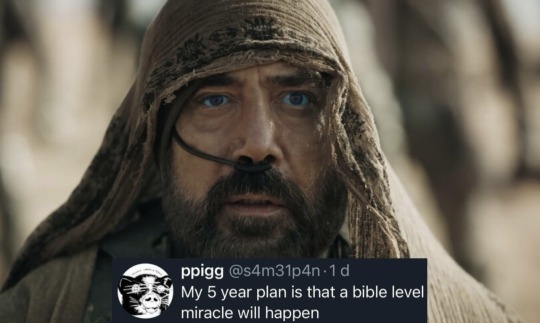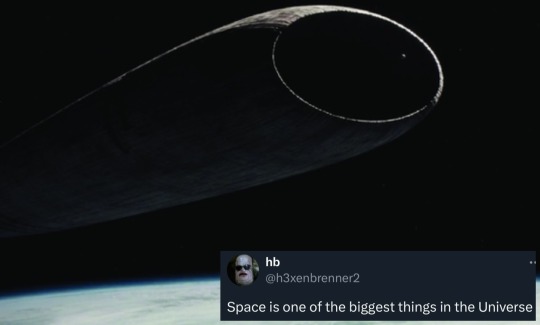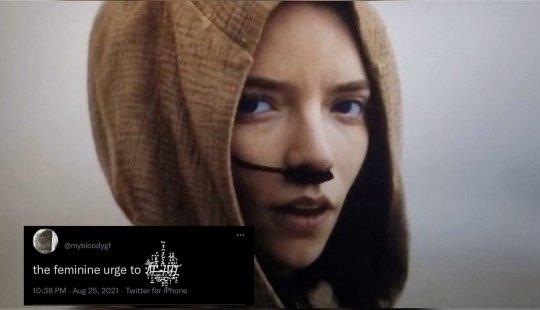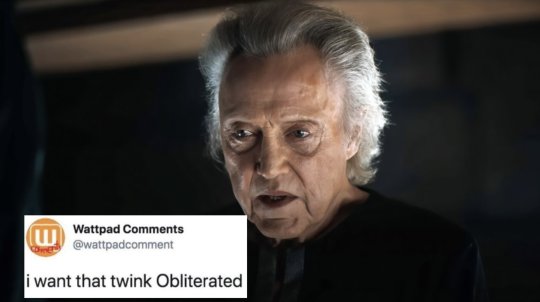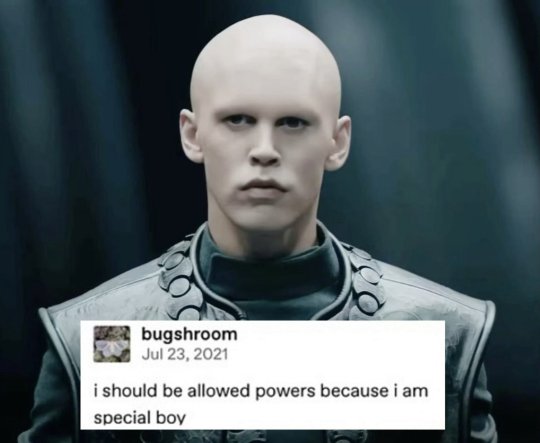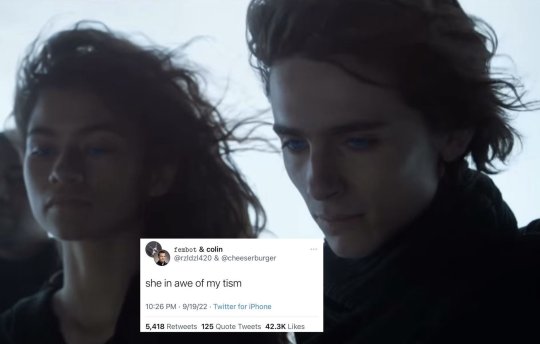Text
Gang, I love the Harkonnens. Don’t get me wrong, I don’t endorse the Harknonnens, but there is something really refreshing about unsanitized villains. They aren’t inhuman slaves to Morgoth, they aren’t seeking restitution for some sort of childhood trauma with dalmatians, they are just shitty, weird people and we get to talk about how those people think without trying to excuse it. What really made me fall in love is the sheer alien weirdness of Geidi Prime in the 1984 movie, and if you haven’t seen that I really recommend you check that out. I feel like there should be some sort of trigger warning, but I don’t really know how I’d tag it so use your best discretion. Today I want to zoom in on a Harkonnen scene towards the end of the first book that I personally would like to see in some sort of extended cut. Let’s dig in.
I’m gonna start off by reminding everyone about the most famous scene in the franchise right at the beginning. You know it. The pain box. ‘I hold at your neck the gom jabbar, it’s poison kills only animals.’ Mohaim is testing Paul’s ability to delay gratification by threatening to stab him with a poison needle if he pulls out of the pain box. We've all seen the memes. Now let's talk about Feyd.
In the book, the whole un-drugged gladiator thing was Feyd's own doing. See, Feyd's family doesn't take him very seriously. He's been chosen as the na-Baron because he's got charisma and he'll look like the savior of Arakkis after Rabban and Vladimir, but he’s a big showboater that has all his fights rigged. By conspiring with Thufir to get a real Atredies soldier into the arena with him, he is forcing his family to realize how important he is to them. If something happens to him, everything goes up in smoke. But he's also given a chance to demonstrate that he is competent (even if he's cheating with a poisoned blade and some selective brainwashing of the undrugged slave.) The seduction with Lady Fenrig happens off screen, but I think in both Herbert and Villinueve's telling of the story, both of these show us this conflict Feyd has with the pressures of his family whether they're tests from the Baron or something he does to himself in response to those pressures. Finally, and most importantly to Feyd, when the Baron executes his slavemaster for slipping up with the gladiators, the next slavemaster is on Feyd's payroll.
Years down the line the Baron finds a poison needle hidden on one of his slave boys and immediately knows what's up. Feyd is trying to claim the Baron's seat and he's been planning on it ever since He calls Feyd in to make him watch as his entire staff and harem is executed on a whim. Here's where we get the absolute juicy thematic inversion. This shit makes me salivate in a way I might want to talk with a therapist about. The Baron says ‘Feyd, you know what this whole poison needle business tells me? You don't know where your priorities are. I am working on setting up the Harkonnens for generations to come and you're so laser focused on the inheritance you haven’t put any thought into what comes next. So stop trying to kill me and let's talk about your future.’
Feyd-Rautha is, by Bene Gesserit standards, an animal. In the Villinueve film we kinda skirt around the idea by hearing he's such a weirdo that the nerve induction gets him off, but I think this scene here really helps to illustrate why Paul might be the Kwizatz Haderach and Feyd has no shot. They've both got the genetics and the ability to win over a crowd. Nobody saw it coming, but the Kwizatz Haderach's ultimate purpose is to wage the war that will literally end all wars, you'd think Feyd-Murder-For-Fun-Rautha would be a shoe-in to traumatize humanity to violence once and for all. But the fact he'd be good at it is what makes him ineligible. The Kwizatz Haderach can't be someone who thinks in the short term. If Paul didn't have the big picture in mind, he would have fled from the violent future he saw himself being responsible for. If Feyd were in his shoes, there is no way he could stop from getting lost in the sauce. Feyd orchestrated his own gom jabbar in the attempt on his uncle's life, and he failed. Even if he saw the same path to save humanity, he'd have too many opportunities to indulge his glory seeking.
27 notes
·
View notes
Text
Ah yes Dune, we have witch bitch wizard Mother of the millennium, narrative successor accidental-deliberate genocidal religious despot, eldest daughter traumacore war criminal princess, the only one who can think straight but is doomed by falling in love with the said prophet-despot, 4 year old space cocaine abomination turned cult-leader, and fridged malewife. Family of all time truly.
2K notes
·
View notes
Text
Somehow I have made it this long without realizing that none of the screen adoptions of Dune so much as mention the Butlerian Jihad. Like I guess it's burned into my brain so hard I sort of assumed it was part and parcel of the universe. Don't get me wrong, I think that's probably the first thing you learn if you want to dive deeper into the setting, but it still hits me like if the LotR movies showed us the big flaming eyeball tower and was like ‘Oh, that's why there are bad things, but don't worry, that's just background stuff.’ Yeah, you can understand the movie, but if the story is just like Frodo vs. The Witch King you are losing out on any of the conversation about the corruptive allure of power or theological undertones. So without further ado let's pretend this is for the benefit of interested new fans roped in by the movies and not part of my desperate attempt to silence the howling specters of literary analysis that live in my blood.
The Butlerian Jihad is an event set ~10k years prior to the events of Dune in which humanity won their freedom from the machines that they had enslaved themselves to. As a result, it is a religious taboo to create a machine that thinks like a human. That's frankly the bulk of the information presented by Frank Herbert in the text without dipping into books 7+, but whether or not those are canon is frankly an enormous can of worms, which really makes sense when you consider the size of the worms. But boy howdy, Frank loved his subtext and parallelism. Everyone has a foil character, every theme is hit from multiple angles, and Villinueve has been doing an excellent job of capturing a lot of that in repeated imagery and dialogue. The Butlerian Jihad happens off camera, but it's themes are absolutely critical to the big picture.
The Butlerian Jihad was a holy war. It was not merely a rebellion against the machines, it was a crusade against them. The prohibition against thinking machines isn't just a law, it's in the pan-universal Bible. Absolute psychopath Pieter DeVries himself claps back at the Baron for insinuating he might have a use for a computer, and this is a guy who has been hired specifically for his preternatural absence of morals. Let's hold onto that idea for a minute.
Probably my favorite scene in the first book is the one where planetologist Liet-Kynes is dying out in the desert. As the last of his strength fades to dehydration he hallucinates conversations he had with his father concerning terraforming Arakkis for human habitability. He's told that the means are not complicated. There is already enough water on the planet, the Little Makers just have it all trapped deep underground as part of the sandworm reproductive cycle. You just need to isolate enough water to start irrigating plant life, and once it's established that'll keep the water on the surface on its own. The hard part is making sure everyone on the planet is environmentally conscious enough to foster a developing ecosystem. Nobody can drink any of that water while it's being collected, because they'll just introduce it back into the water cycle where the Little Makers are. It's going to take generations, so that sort of water discipline is going to have to go above and beyond a social convention. People need to be willing to die before they'll take a sip and compromise the plan. Ghost Dad Kynes concludes that the only mechanism in the human experience to enforce this consensus is religion.
In the context of this whole parallelism thing, you have probably noticed that the Butlerian Jihad is not the only holy war in the narrative. Paul sees a new jihad as the only way of creating a future where humans can flourish. Now you might be saying ‘Wait now, Machines. I thought the point of Paul’s holy war was to avenge Leto and disempower established power structures by taking away the control of the spice!’ And you’d be right. The thing is, without getting into spoiler territory, Dune Messiah is not going to be about how everything just gets so much better now that Paul has destroyed the economy, government, and untold billions of human lives. This isn’t the endgame. Dude can see the future and the way he does it involves looking into the past. Paul lives in a society defined by a holy war and his goal is to redefine society.
Putting it all together you can see what I mean about the Butlerian Jihad being essential to the themes even though the story never shows us a thinking machine or a narrative beat where the absence of computers changes the outcome. It helps us see the big picture. I’ve seen a lot of dialogue lately on whether Paul is a tragic hero or a consummate villain and I’m not here to answer that, but I am here to underline the critical detail. Paul intends to be seen as a tyrant. Just like Kynes’ hallucination says, religion is the lever to make a value stick around forever. He wants to traumatize humanity to hate chosen ones and emperors the same way the machines traumatized humanity to change them forever. The Water of Life ritual doesn’t invert his values, it lets him realize these visions of war are the means, not the ends. He is absolutely not happy about it, but this is Paul’s terrible purpose.
130 notes
·
View notes
Text
This is Paul Atredies, the Kwizatz Haderach! He sees the inevitable extinction of mankind that can only be prevented by installing a religious prohibition against centralized authority into the collective subconscious, but can he see why kids love the taste of Cinnamon Toast Crunch?
IT IS RICH IN THE GERIATRIC SPICE
Okay, I was looking for 'the cinnamon sugar swirls in every bite' but that's way closer than anyone else has got
7 notes
·
View notes
Text
An embarrassing share of my family's estate has been redistributed in the acquisition of experimental material. The trappings of modern ethics in the have sought to stymie the progress of science since before the Fall, and the bleeding hearts have only become more agitated ever since the rats started talking. Thus I have made sure to procure written consent and a receipt of payment for each Rattus Faber ‘volunteer’ in my project to forestay scandal.
If there are any truths to be gleaned from my research the foremost among them is this; If you give a rodent a confection the d–ned things will exploit you for all you are worth. What sympathy I might have fostered for these vermin has been whittled down by their extortionate demands. While so much of London subsists on mushroom flour and the questionably sourced meat-like fare purveyed by Mrs. Plenty, these rats eat as well as any in the Shuttered Palace. I would have hoped a few respectable vintages from Greyfields’ cellars would sate a beast’s tastes for luxury, but treacles and marmalade from the Surface? Soon enough the rodents will have enjoyed more of my estate’s largesse than I might ever hope to.
Precious little has been learned, save for the extent of rodential avarice. Let the church say what it will of mankind’s inclination towards sin, had God granted any beast of nature half the faculties of man we would be more likely to see essays in defense of cannibalizing the young rather than the abandonment of the habit. Yes, there is risk inherent to participating in my studies, and yes it is customary that dangerous work be compensated with additional pay, but I cannot help but feel that tradition ought to be relaxed in the new context of the Neath in the same manner we have abandoned customs regarding marriage and romance in the face of irrefutable proof that there are a great deal more categories of personhood than the two commonly accepted on the Surface.
None of them will suffer any permanent harm until my endeavors are successful and in that eventuality the contract guarantees generous provisions to compensate the family of the deceased. And still, they expect hazard pay as though their deaths were permanent affairs. One in every ten poor souls at any textile mill in London can be seen missing eyes or fingers but are still paid a pauper’s wage because their mutilation is left to chance. If a breakthrough is made tomorrow, perhaps one rat in one hundred will have suffered more than a protracted nap before whatever subnatural force set their little hearts beating once more.
While postmortem interviews have proved informative, the stories are all the same. Regardless of the means of death, the subjects report memories of passage on a small boat in dark waters drifting towards a distant shore. Other passengers may or may not be aboard, but descriptions of the gondolier seem to all indicate a common person (granting, of course, allowances for the subjective interpretation of species, rats and humans alike consider the boatman ‘sharp-eyed’ and ‘well-dressed.’) Witnesses corroborate the presence of a chess set, though I’ve nothing but rumors to ascertain its purpose. Elizabeth, is this why you always played like you had something to lose?
–From the Journal of Dr. Thomas Abernathy, May 3, 1868
2 notes
·
View notes
Text


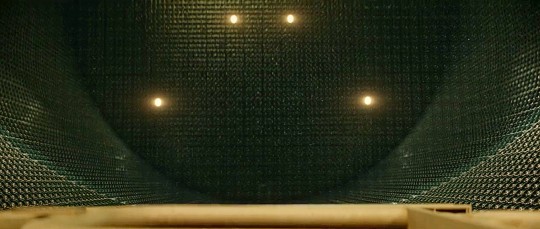
3 body problem (2024-present) cr. david benioff, d.b. weiss, & alexander woo / teaching stone to talk, anne dillard
1K notes
·
View notes
Text
The following exerpts were collected from the notes of Dr. Thomas Abernathy following his disappearance. While they are unaccredited and undated, graphologists unanimously conclude they were written in the doctor's own hand:
In what key are drowned hymns sung?
KAIR-on (n): from ‘charopós’ (G. Keen-eyed)
‘YOU HAVE KNOWN O GILGAMESH, WHAT INTERESTS ME, TO DRINK OF THE WELL OF IMMORTALITY. WHICH MEANS MAKE THE DEAD RISE FROM THEIR GRAVES AND THE PRISONERS FROM THEIR CELLS AND THE SINNERS FROM THEIR SINS. I THINK LOVE'S KISS KILLS OUR HEART OF FLESH.’
Cantigaster-; dreadful name
‘Give me my robe, put on my crown; I have
Immortal longings in me: now no more
The juice of Egypt's grape shall moist this lip:
Yare, yare, good Iras; quick. Methinks I hear
Antony call; I see him rouse himself
To praise my noble act; I hear him mock
The luck of Cesar, which the gods give men
To excuse their after wrath: husband, I come:
Now to that name my courage prove my title!
I am fire and air; my other elements
I give to baser life. So; have you done?
Come then, and take the last warmth of my lips.
Farewell, kind Charmian; Iras, long farewell.’
–Antony & Cleopatra
2 notes
·
View notes
Text
It is seldom heard in our time that the truth is stranger than fiction for much the same reason it is seldom heard: ‘water is wet’ or ‘spiders are best avoided.’ The self-evident does not often bear mentioning. It is for this reason I clarify I do not mean to say ‘the truth is stranger than fiction’ to underscore the sheer alien nature of modern truths, but to lament that I find myself as so many Londoners have become, an inheritor to the House of Usher.
But for divine intercession, there will be no scion to the Abernathy line nor a fortune for one to inherit. A legacy of surgeons and scholars dating back to the twelfth century ends with the last son of Cheterson Hall sparing no expense to trawl the waters of coarse superstition. I make no mirth in winnowing away the hard-won fruits of skepticism on such a venture, but I absolve myself of any sin levied unto me by my ancestors. None among them would have believed in a city stolen by bats and I hope to imagine they would reconsider their biases upon finding themselves living in one.
There are few who sleep well in London, but in my capacity as a physician I assess that my nightmares are short of owing myself a visit to Royal Bethlehem but only just so. I need not even fall asleep to see my Elizabeth awake in her grave, clawing desperately at black earth filling in all around her. Many men of science have fought and failed to break the surly bonds of mortality, but few from circumstances so strange. If souls can be extracted and trafficked, why cannot we at last pay the boatman’s toll when now we share his ports?
–From the Journal of Dr. Thomas Abernathy, April 18, 1868
2 notes
·
View notes
Text
Feyd has been hot for 40 years, where have you been?


Everyone on this website needs the Lord.
1K notes
·
View notes
Text
Is there some law I'm not aware of that forbids airports from serving food anywhere on the spectrum between $20 homestyle tots with truffle infused aoili and the stuff you feed to soldiers in 40k
1 note
·
View note
Text
There are so many places in the Villeneuve Dune adaptations where he just...takes all the narrative pieces that Frank Herbert laid out and subtly rearranges them into something that tells the story better--that creates dramatic tension where you need it, communicates the themes and message of the book more clearly, or corrects something in the text that contradicts or undermines what Herbert said he was trying to say.
The fedaykin are probably my favorite example of this. I just re-read a little part of the book and got smacked in the face with how different they are.
(under the cut for book spoilers and length)
The fedaykin in the book are Paul's personal followers, sort of his personal guard. They show up after his legend has already started growing (the word doesn't appear in the book until chapter 40) and they are people who have specifically dedicated themselves to fighting for him, and right from the moment they're introduced there is a kind of implied fanaticism to their militancy that's a bit uncomfortable to read. They're the most ardent believers in Paul's messianic status and willing to die for him. (They are also, as far as you can tell from the text, all men.)
In the book, as far as I can remember (I could be forgetting some small detail but I don't think so) there is no mention of armed resistance to colonialism on Arrakis before Paul shows up. As far as we know, he created it. This is exacerbated by the two-year time jump in the book, which means we never see how Paul goes from being a newly deposed ex-colonial overlord running for his life to someone who has his own private militia of people ready to give their lives for him.
The movie completely flips all these dynamics on their head in ways that add up to a radical change in meaning.
The fedaykin in the movie are an already-existing guerrilla resistance movement on Arrakis that formed long before Paul showed up. Literally the first thing we learn about the Fremen, less that two minutes into the first movie, is that they are fighting back against the colonization and exploitation of their home and have been for decades.
The movie fedaykin also start out being the most skeptical of the prophecy about Paul, which is a great choice from both a political and a character standpoint. Of course they're skeptical. If you're part of a small guerrilla force repeatedly going up against a much bigger and stronger imperial army...you have to believe in your own agency. You have to believe that it is possible to win, and that this tiny little chip in the armor of a giant terrifying military machine that you are making right now will make a difference in the end. These are the people who are directly on the front lines of resisting oppression. They are doing it with their own sweat, blood and ingenuity, and they are not about to wait around for some messiah who may never come.
From a character standpoint, this is really the best possible environment you could put Paul Atreides in if you want to keep him humble. He doesn't get any automatic respect handed to him due to title or birthright or religious belief. He has to prove himself--not as any kind of savior but as a good fighter and a reliable member of a collective political project. And he does. This is an environment that really draws out his best qualities. He's a skilled fighter; he's brave (sometimes recklessly so); he's intensely loyal to and protective of people he cares about. He is not too proud to learn from others and work hard in an egalitarian environment where he gets no special treatment or extra glory. The longer he spends with the fedaykin the more his allegiance shifts from Atreides to Fremen, and the more skeptical he himself becomes about the prophecy. This sets up the conflict with Jessica, which comes to a head before she leaves for the south. And his political sincerity--that he genuinely comes to believe that these people deserve liberation from all colonial forces and his only role should be to help where he can--is what makes the tragedy work. Because in the end we know he will betray all these values and become the exact thing he said he didn't want to be.
There's another layer of meaning to all this that I don't know if the filmmakers were even aware of. Given the time period (1960s) and Herbert's propensity for using Arabic or Arabic-inspired words for aspects of Fremen culture, it seems very likely that the made-up word fedaykin was taken from fedayeen, a real Arabic word that was frequently used untranslated in American news media at the time, usually to refer to Palestinian armed resistance groups.
Fedayeen is usually translated into English as fighter, guerrilla, militant or something similar. The translation of fedaykin that Herbert provides in Dune is "death commando"...which is a whole bucket of yikes in my opinion, but it's not entirely absurd if we're assuming that this fake word and the real word fedayeen function in the same way. A more literal translation of fedayeen is "self-sacrificer," as in willing, intentional self-sacrifice for a political cause, up to and including sacrificing your life.
If you apply this logic to Dune, it means that Villeneuve has actually shifted the meaning of this word in-universe, from fighters who are willing to sacrifice themselves for Paul to fighters who are willing to sacrifice themselves for their people. And the fedaykin are no longer a group created for Paul but a group that Paul counts himself as part of, one member among equals. Which is just WILDLY different from what's in the book. And so much better in my opinion.
1K notes
·
View notes
Text
masterpost of all the old doom patrol fanart I could recover from the old blog, under the cut [mostly mr nobody and a few of the negative spirit and other stuff]


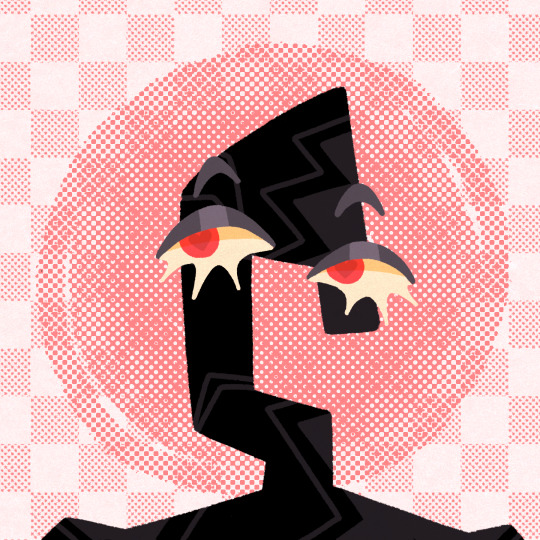


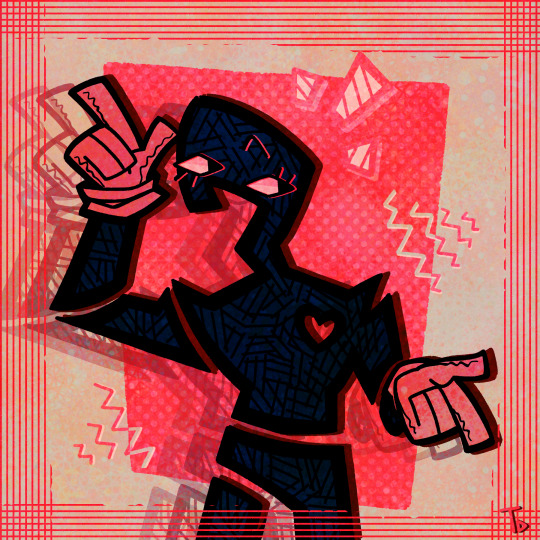




13 notes
·
View notes
Text
I had a really loose understanding of general relativity by second grade, so I orchestrated a big effort to get the tire swing moving so fast recess would take subjectively longer.
hey. personality quiz right here right now. What did you do at recess. :)
48K notes
·
View notes
Text
Speculative Spoilers:
Very interesting find reading Dune. Paul starts seeing the future immediately after his dad dies and sees two big outcomes. In one of them he wages holy war to avenge Leto. In the other one he sees himself before the Baron saying 'Hello, Grandfather.' In the book Alia kills the Baron before Paul meets him. The movie, he drops the line. Mister Villinueve, what do you have cooking?
33 notes
·
View notes


